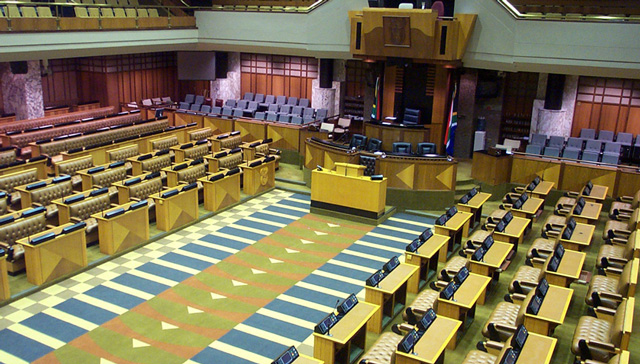
A signal jammer was installed in parliament ahead of the state of the nation address delivered by President Jacob Zuma on Thursday evening. The device was later switched off following strenuous objections by the Democratic Alliance and the Freedom Front Plus.
Journalists in parliament said that a signal jamming device was installed preventing those inside the house from using their mobile devices.
But use of the jammer appeared to be in breach of a decision by communications regulator Icasa that bans the use of such equipment.
“The jamming device is not permitted unless licensed by Icasa, and Icasa has indicated that it will not license such devices,” said telecoms lawyer Lisa Thornton. “So, it is likely that the use of the device — perhaps even having the device — is not legal in South Africa.”
In 2012, Icasa said that the use of a device to jam cellular phone signals, privately or publicly, was illegal in South Africa.
“No organisation is allowed to jam cellular signals, and any device which is used to jam signals is illegal,” Icasa spokesman Paseka Maleka said.
Maleka referred to Government Gazette 24123, from November 2002, which contained Icasa’s findings on “mobile telephone blocking devices”.
He could not be reached on his mobile phone for comment on Thursday evening on parliament’s use of a signal jammer.
“There appears to be no legitimate radio communications use for cellular jamming devices,” Maleka said in 2012. “Icasa has therefore decided that use of jamming devices will not be authorised.
Icasa had accepted submissions on jamming before it finalised the report.
Icasa found that security cluster departments, such as defence, the Hawks or correctional services, could not use jammers as they had “alternative legislation” to support other means of security.
Jamming devices emit radio waves with the same frequencies as cellular phones. This causes enough interference and renders the phones unusable. — (c) 2015 NewsCentral Media, with Sapa




